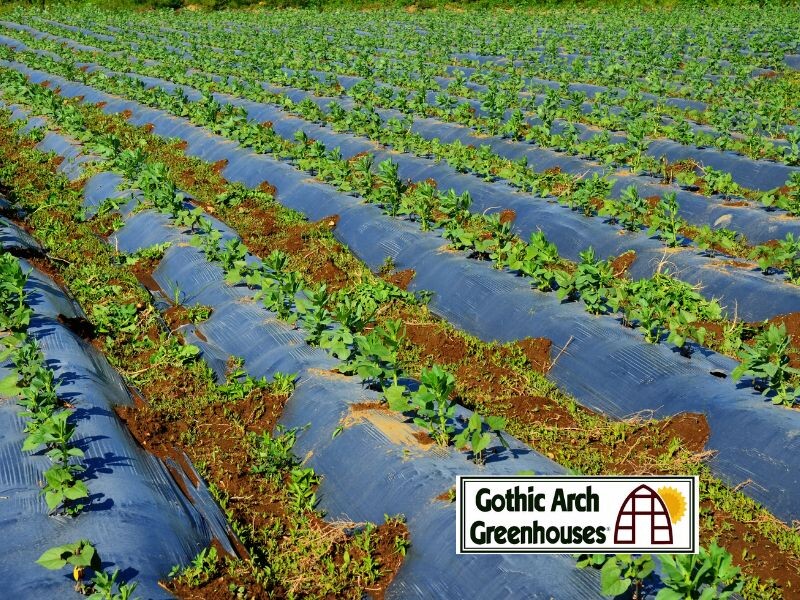
With today’s demand for increased food production and heightened awareness for the responsible use of our limited resources, ‘Plastic Mulch‘ is proving to be a justifiable addition to the cost of commercial vegetable production around the world.
Plastic mulch is extruded from clear polyethylene resin into sheets of film of varying widths and lengths. Generally, the thickness is 1.0 to 1.1 mil (1 mil = 1/1000 inch) although thinner materials are available in high density polyethylene. Because of the inherent physical properties of black and other colored plastic mulches, it modifies the micro-climate around plants, enhancing growth, yield, and quality of horticultural crops. Over many years of experimentation and use since the late 1950’s – plastic mulches have proven to be a boost to agricultural productivity.
Some of the benefits of the use of Plastic Mulches in commercial vegetable production are:
A. Soiled is warmed in late winter to allow for early spring planting of crops
B. Effective weed barrier and water/nutrient conserving properties
C. Research proven to significantly strengthen plants and enhance crop yields
D. Acts as a barrier inhibiting the release of Methyl bromide fungicide from the soil
E. Drip Irrigation compatible
F. Able to be responsibly recycled to become part of new products
G. Alternative bio-degradable ‘Paper Mulch’ for more ‘Eco-Friendly’ impact
A. Early Spring and Fall Planting
Soil temperature is affected by the use of different colored plastic mulch film. Films that are dark or clear warm the soil and allow one to plant crops earlier in the spring than normal….getting a jump on the hot, buggy part of the year.
Plastic Mulch Films that are white or light colored tend to reflect the sun’s rays, helping in summer to cool the soil to enhance, allowing one to plant fall crops earlier than normal for a longer growing season
B. Weed management, Soil moisture and fertilizer retention
Less water is needed for irrigation, as Plastic Mulches inhibits the evaporation of water from the soil. Plant stress is reduced under plastic mulch film as moisture is provided more evenly. When drip irrigation is utilized, leaching of fertilizers is minimized…and becomes an economic and resource conserving practice over conventional, resource wasteful ‘flood and furrow’ irrigation methods or broadcast fertilization. The combination of Plastic Mulch and Drip irrigation put the nutrient rich water sparing at the root zone of the plant for optimum utilization of water and fertilizer….a resulting win-win scenario.
Additionally, annual and perennial weeds are effectively inhibited due to the fact that Plastic mulches prevent the sunlight from reaching the soil. The hole cut into the mulch for the vegetable to grow is the only spot a weed could take hold and grow.
C. Improved soil and crop quality and yields
Weeds are held in check so there is no need for mechanical cultivation with a tractor, thus the roots off the plants are allowed to grow in soil that is not compacted or has a hard crusting over from extremes of sun and rain condition.
Ripening fruit is kept off the soil with Plastic Mulch resulting in decreased fruit rot, keeping the fruit and vegetable clean for better market appeal.
All there beneficial factors lend themselves to realizing an improvement in the vigor of the plant and resulting enhanced crop yield
Gothic Arch Greenhouses Inc
